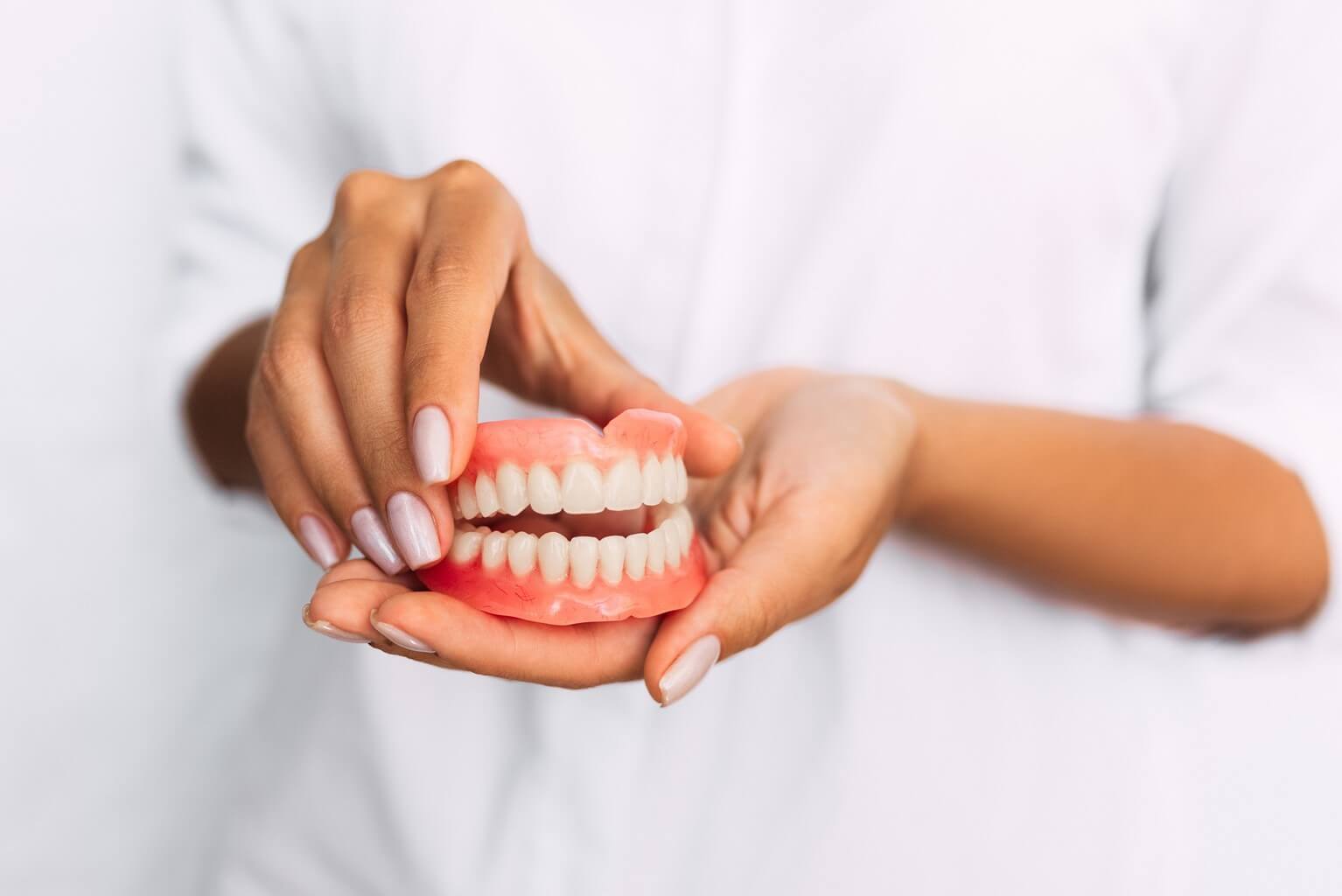How long do dentures near you typically last? Given the wide range of conditions in which dentures do their work, the answer to that question will always be a range. Dentures should typically be replaced if they are more than five to eight years old. At every dental checkup while you wear dentures, your dentist and hygienist at Northern Dental Centre will examine your dentures and gums carefully to alert you when your dentures need repairs or replacement. So that you don’t have to rely entirely on your dentist, though, here are signs to watch for to determine for yourself when dentures need to be repaired or replaced.
Are any of the teeth broken?
The material used to make the artificial teeth in your dentures is strong, but vulnerable at the same time. Those teeth can be broken. Silly as it might seem, one of the biggest culprits that produce broken teeth is dropping your dentures into an empty sink or hard floor while trying to clean them. However it happens, if any of your teeth are broken — entirely or just chipped or cracked — don’t try and fix them yourselves. Take them to a dentist in Grande Prairie to arrange for repairs or, if the damage is worse than you realize, If any of the teeth in your dentures are broken, don’t try to repair them yourself, but take them to a dentist who will arrange to have them repaired or, if the damage is worse than it seems at first glance, replaced.
Do they fit poorly?
When you first get your dentures and finish getting used to wearing them, they fit perfectly (or should have). Because wearing dentures in your mouth is nothing like keeping dentures on a shelf, though, the way those dentures fit will naturally change over time. As you live without natural teeth and tooth roots, the shape and size of your gums and jaw will change. At the same time, the surface of the dentures that meet those gums will also change with gradual wear and tear. The combination of those changes will affect the fit and can produce looseness and sensations of slipperiness. That doesn’t necessarily mean that the dentures need to be replaced, but they should be assessed to see if they need to be relined.
Have you lost weight lately?
If you’ve lost a significant amount of weight, the volume and shape of your gum tissue are even more likely to have changed than simply by the passage of time. As your gums shrink and your weight drops, your dentures will fit increasingly poorly. Whether you’ve noticed problems with your dentures or not, take your dentures in Grande Prairie to a dentist for an inspection and, if necessary, relining if you’ve lost anything more than approximately 20 pounds.
Are there any sores on your gums, or are they irritated?
If your gums were sore in the first days and weeks of wearing dentures, that does not mean that they need to be replaced. It just means you need to keep getting used to your new dentures. If soreness or sores return after you finally get used to your dentures and bid adieu to the initial soreness, those new issues may be a sign of a problem. If your gums are suddenly sore again or if you suddenly see new sores, have a dentist near you examine your dentures carefully.
Is your speech or pronunciation changing?
Do you remember when you first started wearing your dentures? You probably noticed changes to the way you pronounced words and even changes to the way words sounded. As you got used to speaking with dentures, those problems thankfully disappeared. If — as we mentioned in terms of sores and soreness — speaking problems emerge or you think the sounds of your words have changed again, ask your dentist to see if your dentures are fitting properly or require relining or replacement.

